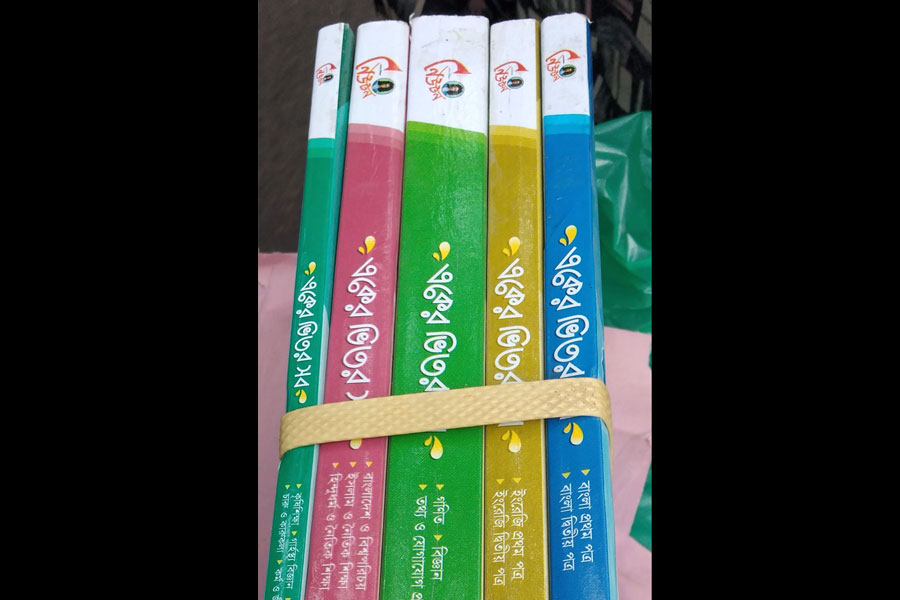
Published :
Updated :

A textbook is a book that contains study materials for a particular subject. And what study materials textbooks on different subjects should contain are determined by the school curriculum board. Ideally, there should be trained teachers in schools to impart knowledge from the prescribed textbooks to their pupils. So, it is the teachers who are to guide students to learn the relevant subjects. But then why are some teachers, reportedly, asking, in some cases even forcing, their students to buy the so-called guidebooks? And if students have to buy guidebooks, then what are the textbooks and teachers for? Reports say, a nexus between the guidebook publishers and a section of schoolteachers are behind this unhealthy development vitiating the learning environment in schools.
And this unhealthy guidebook culture has proved to be a huge financial burden for the students' guardians. In fact, those guidebooks on different subjects are very expensive. According to an estimate, each student from the primary to higher secondary level spends between Tk.500 and Tk. 700 on guidebooks. Now let us see how big is the guidebook market. Taking the Bangladesh Bureau of Statistics (BBS)'s survey figure on the number students of class I to class XII who went to school in 2022 stands at 11 million, the amount of money they spent on guidebooks comes to Tk.5 billion (assuming that each student's annual budget for guidebooks is Tk.500). No doubt, it is a thriving market of guidebooks and, as expected, the vested interests are deeply entrenched in the education sector.
Guidebooks for different subjects taught in schools, however, are not a new development. Students would use such help books also in the past as a source of additional information. But there was no such compulsion to buy such reference books. Both teachers and guardians were rather against using guidebooks which contained solutions of the exercises that textbooks provided at the end of each chapter. Needless to say, teachers of those days would often punish students if they were found to have used guidebook to solve exercises instead of doing those by themselves.
Strangely though, far from prohibiting the use of guidebooks, some teachers themselves are now vending guidebooks. And they are not ashamed of it. How low have they sunk!
The National Curriculum and Textbook Board (NCTB) Act does not allow schools to prescribe any book other than textbooks. In that case, the teachers who are openly asking students to buy guidebooks are doing it in violation of NCTB Act. But then why are such teachers not being held to account for their unethical and illegal practice? And should the publishers of guidebooks not also be held culpable for violating the Book Publishing Act of 1980, which prohibits printing and marketing of guidebooks?
Publishers are often reportedly alleged of unethical efforts to bribe schoolteachers so they might influence students to buy their guidebooks. But teachers willingly acting as their agents is unfortunate and unacceptable. Small wonder that today's teachers have lost much of their earlier social standing as builders of the future generation. In the past, alongside arts, science and other branches of knowledge, teachers would also teach their students moral values. But, of late, teachers are not required to have high moral standard. Teaching for them is just another job to earn money. So, schoolteachers of today do not feel any compulsion to set examples before the students. And they also feel no qualms about forcing the guidebooks on their students just to make some money.
But who is to stop the rot?
sfalim.ds@gmail.com


 For all latest news, follow The Financial Express Google News channel.
For all latest news, follow The Financial Express Google News channel.